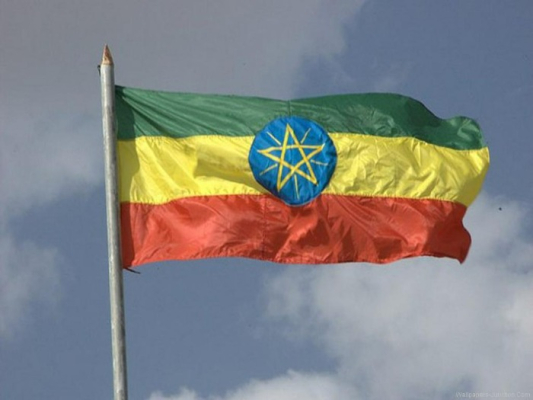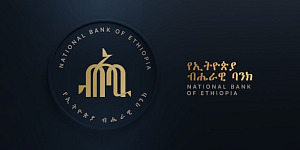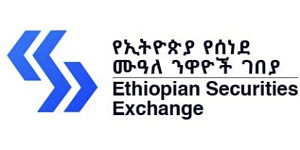Fitch Ratings has affirmed Ethiopia's Long-Term Foreign-Currency Issuer Default Rating (IDR) at 'B' with a Negative Outlook.
KEY RATING DRIVERS
Ethiopia's 'B' rating balances strong medium-term economic growth potential against low development and governance indicators and low foreign currency reserves (FX), especially relative to external financing needs. The rating also reflects international financial and liquidity support to ease financing pressures, the predominance of concessional official sector borrowing relative to commercial debt and an improving policy framework.
The Negative Outlook largely reflects the risks emanating from the COVID-19 pandemic, which will significantly hit Ethiopia's economic growth, widen the budget deficit and add further pressure to already weak external finances. Considerable political uncertainty, including a controversial delay to the 2020 parliamentary election and ethnic and regional tensions within the country, remains a risk to Ethiopia's credit metrics, in Fitch's view. Greater political unrest could, for example, exert further upward pressure on inflation and act as a drag on tax collection and foreign direct investment (FDI).
Ethiopia's external finances are a key weakness for the rating. Persistent current account deficits (CAD), low FX reserves and rising external debt repayments present a risk to external debt sustainability. We forecast that the CAD will narrow to 4.3% of GDP in the fiscal year to end-June 2020 (FY20) and widen to 4.5% of GDP in FY21 (USD4.8 billion). This follows a trend of CAD moderation from 12.5% of GDP in FY15, helped by restraint on government and SOE imports and despite declines in export receipts. However, net FDI fell from 4.1% of GDP on average in FY15-FY18 to 3.1% in FY19 and likely 1.5% in FY20. Proposed sales of mobile licenses and a stake in Ethio Telecom, the state-owned telecoms company, are an upside risk to inflows in FY21 as we have not assumed inflows from these sources in our forecasts given uncertainty over timing.
External financing requirements are high relative to FX reserves, which we expect to be around USD3 billion at the end of June, covering only around two months of current external payments. Prior to the G20's DSSI, Ethiopia faced an external financing requirement of USD6.2 billion in FY21, including USD1.3 billion of federal government and SOE amortisation. External amortisation will be lower in light of the DSSI, which for Ethiopia could suspend USD800 million of external debt service in May-December 2020 according to the Ethiopian Ministry of Finance. It remains unclear whether the initiative will be extended into 2021.
Fitch's sovereign ratings apply to borrowing from the private sector, so official bilateral debt relief would not constitute a default, although it can point to increasing credit stress. Ethiopia's external debt profile incorporates a high share of concessional and official sector loans. Government and SOE government-guaranteed debt owed to private creditors totalled USD3.4 billion, or less than 4% of GDP, at end-2019. Of this total, Ethiopia has USD1billion of outstanding Eurobonds maturing in 2024, with an annual debt service cost of USD66 million, which should be manageable, in Fitch's view. Other SOE debt to private creditors which relates to Ethio Telecom and Ethiopian Airlines is a further USD3.5 billion. While this is not guaranteed by the government and is currently performing, it represents a potential contingent liability.
Prior to the COVID-19 pandemic and the G20 DSSI initiative, financial support from bilateral and multilateral partners was already important in mitigating pressure on Ethiopia's FX reserves. A multi-year agreement with the World Bank brought in budget support funds starting in late 2018. Ethiopia and the IMF agreed a three year programme in December 2019 (now worth USD2.7 billion); Ethiopia also received USD411 million in May 2020 via the IMF's Rapid Financing Initiative and debt to the IMF of USD12 million was cancelled under the IMF's Catastrophe Containment and Relief Trust.
In addition, Ethiopia and China agreed in early 2019 to reprofile some SOE debt to Chinese creditors, securing more favourable terms including extension of grace periods. Ethiopia is also finalising agreement with official creditors in the Gulf to extend the tenors of foreign deposits at the National Bank of Ethiopia (NBE, the central bank). Our numbers incorporate estimates for both of those re-profiling exercises. In aggregate, these official sector financing initiatives provide material support to Ethiopia's credit profile, mitigating the external financing pressures indicated by the headline numbers.
The authorities had adopted somewhat tighter fiscal and monetary policies, prior to the COVID-19 pandemic, to try to combat macroeconomic and external imbalances and FX shortages. Public sector debt was moderating, as was the CAD. The budget deficit in 1HFY20 was smaller than the IMF programme target, reflecting improved tax collection. Ethiopia initiated new T-bill auctions to make domestic financing more market driven. NBE allowed faster depreciation of the overvalued exchange rate, helping to narrow the gap with the weaker parallel exchange rate, although this remains large (more than 25% in April).
Inflation remains very high despite tightening measures by the NBE, with upward pressure coming from supply side factors, notably food price inflation. We expect inflation to average 18% in FY21, following an average of 20% in FY20. We have revised down our real GDP growth forecasts to just over 3% on average across FY20 and FY21 from just over 7% previously because of the negative impact of COVID-19 on economic activity. Infrastructure investment, expanding manufacturing supply and urbanisation should underpin a growth recovery over the medium term. Political instability and balance of payments strains present downside risks.
We forecast the general government budget deficit to widen to 4.0% of GDP in FY20, as the government deploys a stimulus of 1.6% of GDP up to end-June. The lingering impact of the pandemic will keep the deficit at a similar level in FY21, before stronger growth and reduced crisis-related spending needs narrow the deficit thereafter.
We forecast that general government debt will increase modestly, to 32% of GDP, as will total public sector debt to 59% of GDP for FY20. The latter includes around 20% of GDP of non-guaranteed SOE debt, including debt of Ethiopian Airlines and Ethio Telecom. The government has maintained a policy of no new non-concessional external debt and is focusing on completing the existing portfolio of projects rather than starting new projects. We expect debt levels to decline modestly provided the economy returns to healthier growth levels in FY22.
ESG - Governance: Ethiopia has an ESG Relevance Score (RS) of 5 for both Political Stability and Rights and for the Rule of Law, Institutional and Regulatory Quality and Control of Corruption, as is the case for all sovereigns. Theses scores reflect the high weight that the World Bank Governance Indicators (WBGI) have in our proprietary Sovereign Rating Model. Ethiopia has a low WBGI ranking in the 24thpercentile.







































